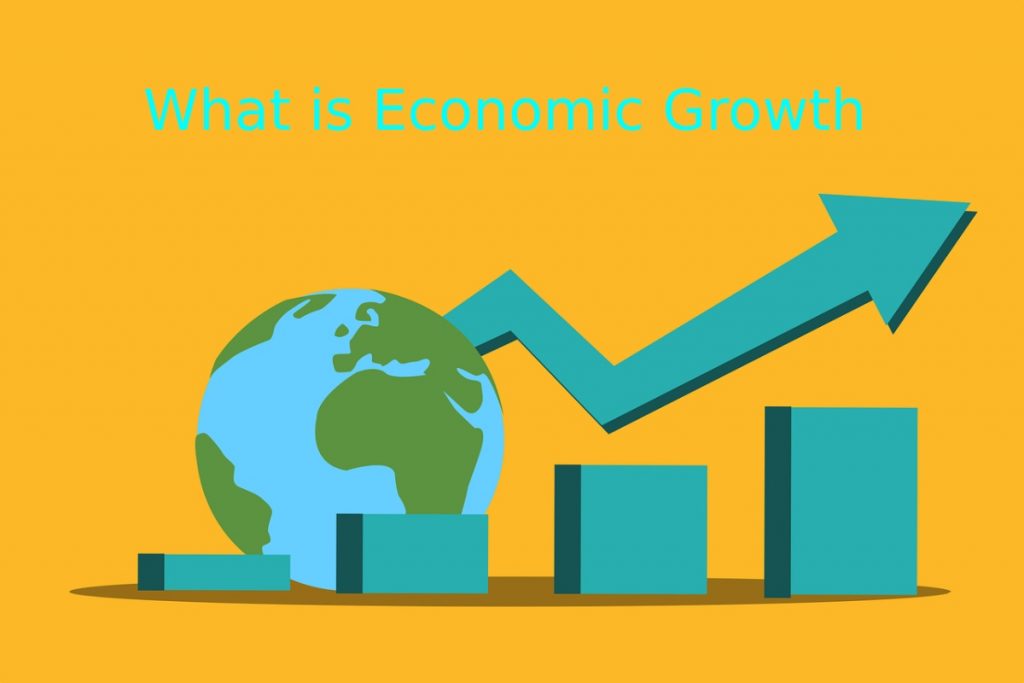Table of Contents
Introduction
Economic Growth is the improvement in the distribution of wealth and income that leads to a quantifiable, observable, and measurable rise in production indices and the quality of life of people in a specific region.
Economic growth reflects in the increase in each country’s Gross Domestic Product per capita in a given period, which generally corresponds to an annual measurement that allows it to be compared and measured with previous levels.
This measurement is made per capita or person. The size could be more reasonable between the different countries since it would not be practical to carry out only with the global GDP since the economic characteristics and the population are very dissimilar between countries.
Characteristics of Economic Growth
The central individuality that shows the economic growth of the territory is the following:
- Boosted output.
- Increased industrialization processes consistently.
- Most of the residents have a high per capita income.
- Consumption of goods and services at an all-time high.
- The low proportion of persons employed in the primary sector.
- Productivity sector diversification
- Most of the population has a high quality of life.
- Major scientific and technological breakthroughs.
- Exports are up.
How is Economic Growth Measured?
You may interest: in Gross Domestic Product.
The real Gross Domestic Product per capita is used as a leading indicator to gauge economic growth. Gradual economic expansion leads to a consistent increase in real GDP per capita.
The Human Development Index (HDI) also use by some analysts as a supplement to other indicators when analyzing economic progress.
Factors Affecting Economic Growth
Productivity increase is the most crucial element determining economic growth. Competitiveness and other variables that impact them, such as list below, must be taken into account.
Productivity define as the amount of work that a worker can complete in a given amount of time. As a result, economic development may attaine if the quantity produced by employees continues to rise continuously. Productivity in the economy calculates by dividing real GDP by the number of economically active individuals in a given economic zone. The following are some of the elements that influence productivity levels and hence economic growth:
Physical capital refers to the physical assets utilized to develop the manufacturing process, such as buildings, structures, machinery, and production equipment. Physical money is essential because it may increase worker productivity. A worker who uses a bulldozer, for example, can dig deeper into the ground than one who merely uses a shovel.
Human capital refers to workers’ increased ability due to studies, knowledge, training, education, and training.
Technology refers to the investment made in research and development to access technological tools for producing goods and services.
Competitiveness refers to a country’s ability to create goods and services recognized by worldwide markets under open and transparent market circumstances while also maintaining and increasing the real income of its citizens over time.
More About Economic Growth
Economic growth is the affirmative evolution of the living standards of territory, usually countries, measured in terms of the productive capacity of its economy and its income within a specific period.
The strictest definition of economic growth is the one that indicates that there is an increase in terms of income or goods and services that the economy of a territory produces in a given time, generally measured in years.
The concept of income can include many other economic indicators of the well-being of any country or region within this definition. Aspects such as the height of savings or speculation of its citizens and its trade balance commonly consider when studying economic growth. The most used meter to measure the economic evolution is usually the fluctuations of the analyzed country’s GDP (Gross Domestic Product).
Economic Growth Theory
The economic studies that have attempted to characterize this phenomenon include in the theory of economic growth and focus on researching the advances that economies have seen over a period, which usually tends to prolong over time. There a period when the business cycle hypothesis popular.
Many other facets of an economy’s productive existence examine via the study of economic growth, including it efficacy, the quality of education offered to it residents, mortality and birth rates, and population life expectancy. Region.
On the other hand, this form of growth frequently associate with success or failure, as in the case of economic recessions (when economic activity declines for some time) and global financial policies based on the notion that as a country’s GDP rises, so will its residents’ well-being.
However, the distribution of a country’s wealth or the specific characteristics of its production. System can hide aspects that measurement in terms of income fails to explain in detail. The use of GDP as a measure helps to simplify reality when analyzing growth. Although it does not manage to explain the true improvement in living conditions fully.
Growth rate
Economic growth factors
Various theories of economic development and their causes have create during decades of economic research. These are helpful simplifications of reality when figuring out how economies grow and why they change. The broad conclusion that can derive from them is that certain things are critical to economic growth:
Capital investment includes: Workers must be able to do their product work in better circumstances and with more equipment.
Education: Or, to put it another way. The investment in human capital that prepares participants in the production process to enhance productivity. While using the same resources and be more effective.
Technology is crucial because it allows for the advancement of work patterns, tools, production methods, and research methods.
Also Read: Persuasive Texts – the Eight Keys to Creating a Copy
